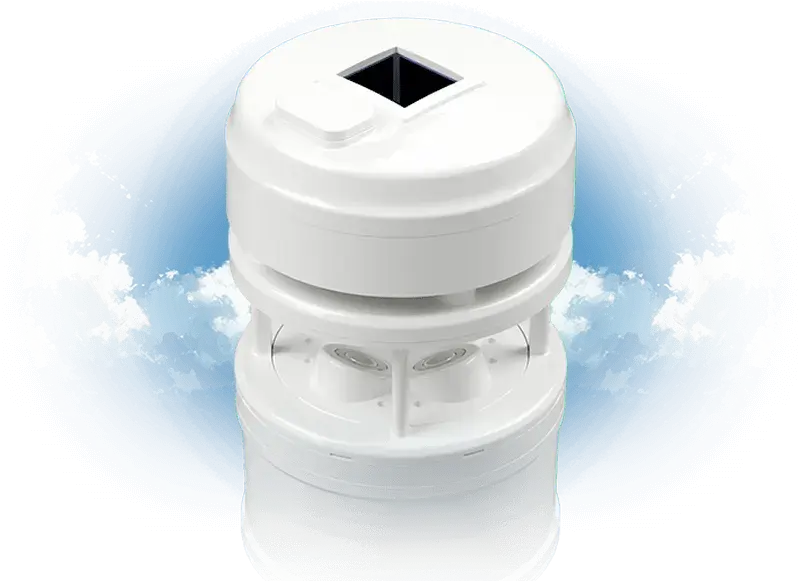Construction Weather
Industry Solutions
We introduce heat stroke prevention challenges and our service usage examples for each industry.
Industry Solutions
Top PageWeather Solutions
Heat Stroke Prevention
Weather Solutions
Strengthening On-Site Heat Risk Management Based on WBGT
Heatstroke risk in summer construction sites is becoming a life-threatening issue. As of June 1, 2025, employers are legally required to take measures to prevent heat illness. To ensure on-site safety, both forecasting and immediate response to temperature and humidity are essential. Weathernews supports corporate heat stroke prevention through real-time data and high-precision forecasting.
Table of Contents [ ]
Heatstroke occurs when the body’s temperature regulation fails due to an imbalance of fluids and electrolytes in hot and humid environments. When working outdoors, direct sunlight and glare can easily cause a rapid rise in body temperature, leading to dehydration and electrolyte imbalances, so special care is required. Symptoms can start with mild dizziness or lightheadedness and progress to loss of consciousness, convulsions, and even death in severe cases.
Heat stroke is a familiar health risk that can happen to anyone, and early detection and prompt response are key to preventing severe cases. Heat stroke severity is divided into three stages with the following symptoms.
Severity Classification
Grade I (Mild)
Grade II (Moderate)
Grade III (Severe/Life-threatening)
Symptoms
Dizziness, muscle pain or stiffness, excessive sweating
Headache, discomfort, nausea or vomiting, fatigue, exhaustion
Loss of consciousness, convulsions, motor impairment (of the limbs), high body temperature
Required Response
Appropriate first aid at this stage is important.
Transportation to hospital is necessary.
Hospitalization and intensive care are required
※Source: Heat Stroke Environmental Health Manual 2022

Construction site on an extremely hot day Photo: Submitted via Weathernews app [*1]

Inside a greenhouse exceeding 40°C Photo: Submitted via Weathernews app [*2]
Heat stroke risks in outdoor work are extremely high, and in industries such as construction and infrastructure and agriculture, where working under the blazing sun is unavoidable, thorough preventive measures are essential to avoid occupational accidents. In addition to managing work hours based on the WBGT (Wet Bulb Globe Temperature) index, it's important not to miss Grade I signs and take appropriate action early. Specifically, mandatory frequent water and salt intake, securing shaded rest areas, wearing breathable work clothes, and raising awareness so that each employee pays close attention to changes in their physical condition and reports any abnormality immediately. This requires fostering an open and supportive workplace culture.
Managers must continuously monitor work environments, assess employee health conditions, and establish reasonable work systems. Preventing severe cases requires early detection, prompt first aid, and rapid medical transport when necessary. We must recognize that heat stroke is entirely preventable and commit to implementing stronger safety measures company-wide.
From June 1, 2025, the Occupational Safety and Health Regulations were revised, requiring employers to take measures to prevent heatstroke. This legal revision is in response to the recent rise in heatstroke-related workplace accidents and fatalities. Its purpose is to ensure the early detection and prevention of severe heat-related illnesses in the workplace.
The main points of this revision are the following three: • Establishment of heat stroke response reporting systems • Creation and dissemination of response procedures for onset • Thorough dissemination to all parties involved in worksites
At school environments, similar measures are recommended both as work environments for faculty and staff and for ensuring student safety. The revision of Occupational Safety and Health Regulations is an opportunity to recognize the importance of heat stroke prevention. Due to legal changes, worksites must establish systems that don't miss early symptoms of heat stroke and can respond quickly and appropriately. Employers and site managers are required to strengthen heat stroke countermeasures tailored to each site's risks based on the latest laws and notifications, and advance education and manual development so everyone can understand and practice new rules.
We introduce heat stroke prevention challenges and our service usage examples for each industry.
The weather IoT sensor 'Soratena Pro' observes seven weather elements including rain, wind, temperature, and humidity every minute. Based on this data, it calculates the WBGT (heat index) and provides a cloud-based service that "visualizes" heat stress risks at worksites where Soratena Pro is installed.

Based on temperature, humidity, wind speed and other data observed every minute by 'Soratena Pro', the outdoor heat index is calculated in real-time using the Ministry of Environment's WBGT calculation formula.
The calculated heat index is clearly displayed in four levels: "Caution", "Alert", "Severe Alert", and "Danger".
When pre-set WBGT thresholds are exceeded, alerts are sent via push notifications and email. Notification timing, trigger levels, intervals, and other settings can be finely customized to user needs.
Using email notifications as triggers, integration with equipment such as rotating lights (indicator lights) used at sites and factories provides a visual warning of dangerous heat levels.
Accurate WBGT values based on actual weather data at installation sites can be monitored in real-time, enabling more precise heat stroke countermeasures.
Alert notifications and equipment integration provide quick warnings when thresholds are exceeded, significantly reducing the risk of heat stroke incidents.
Notification methods and thresholds can be customized to site conditions and work content, enabling more effective heat stroke prevention.
By "visualizing" WBGT and providing alerts and visual warnings, employee awareness of heat stroke can be heightened.
By analyzing historical WBGT data, situations where heat stroke risks are likely to occur can be identified and applied to future countermeasures.
At worksites where enhanced heat stroke countermeasures are required, implementing measures based on objective data supports legal compliance and strengthens safety management systems.
We can provide proposals tailored to your challenges, including specific use cases for Soratena Pro. Please feel free to contact us with any pre-implementation questions or consultations.
We'll explain pricing details and provide specific content based on your site conditions so you can consider with confidence.
Free Quote
We'll explain in detail how to utilize features and the implementation process. Please feel free to consult with us.
Consider Implementation